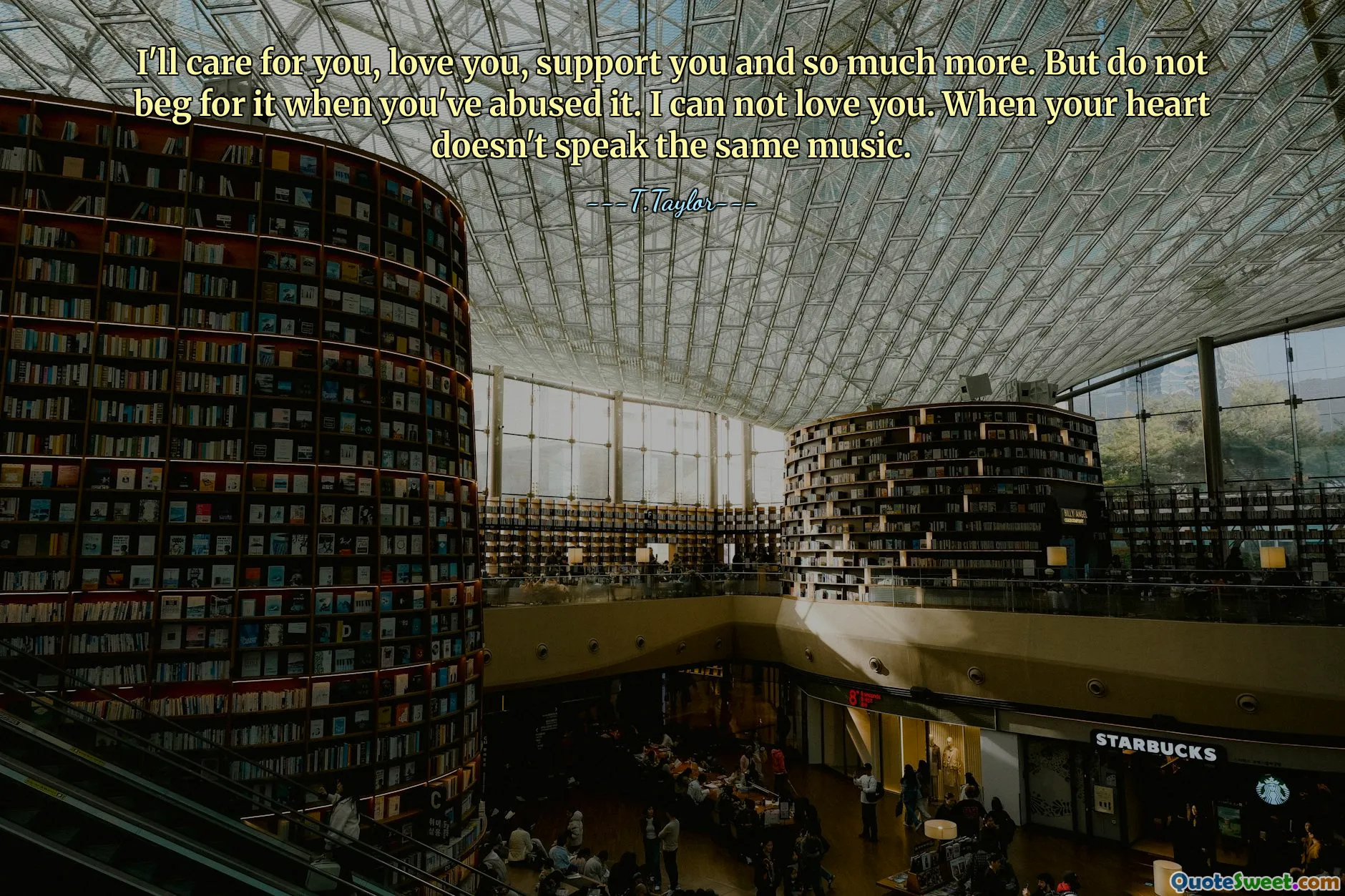
I'll care for you, love you, support you and so much more. But do not beg for it when you've abused it. I can not love you. When your heart doesn't speak the same music.
This quote reflects the delicate balance between giving love and maintaining boundaries within relationships. The speaker expresses a willingness to care, love, and support someone deeply, but it is conditional on mutual respect and genuine emotional harmony. The notion that love cannot exist when one person pleads for it after having taken it for granted highlights the importance of sincerity and reciprocity in emotional connections. Trust and genuine understanding are fundamental blades in the fabric of healthy relationships.
The metaphor about the heart speaking the same music emphasizes the need for synchronization in feelings and intentions. When individuals are not in tune—sharing mismatched emotions or priorities—the relationship becomes strained and often unsustainable. The plea to not beg for love underlines that authentic affection cannot be coerced or manipulated; it flows naturally when both parties are aligned.
Overall, this quote invites reflection on the vital importance of respect, honesty, and emotional mutuality. It speaks to the pain that arises when love is one-sided, or when efforts are unreciprocated or taken for granted. It urges both individuals in a relationship to nurture a genuine connection and recognize when the harmony is lost, perhaps to step back or reevaluate their commitment. Love, in its truest form, is a mutual exchange, and when that exchange is broken, it may be better to reconsider the depth of that love rather than attempt to force it.
---T.Taylor---











